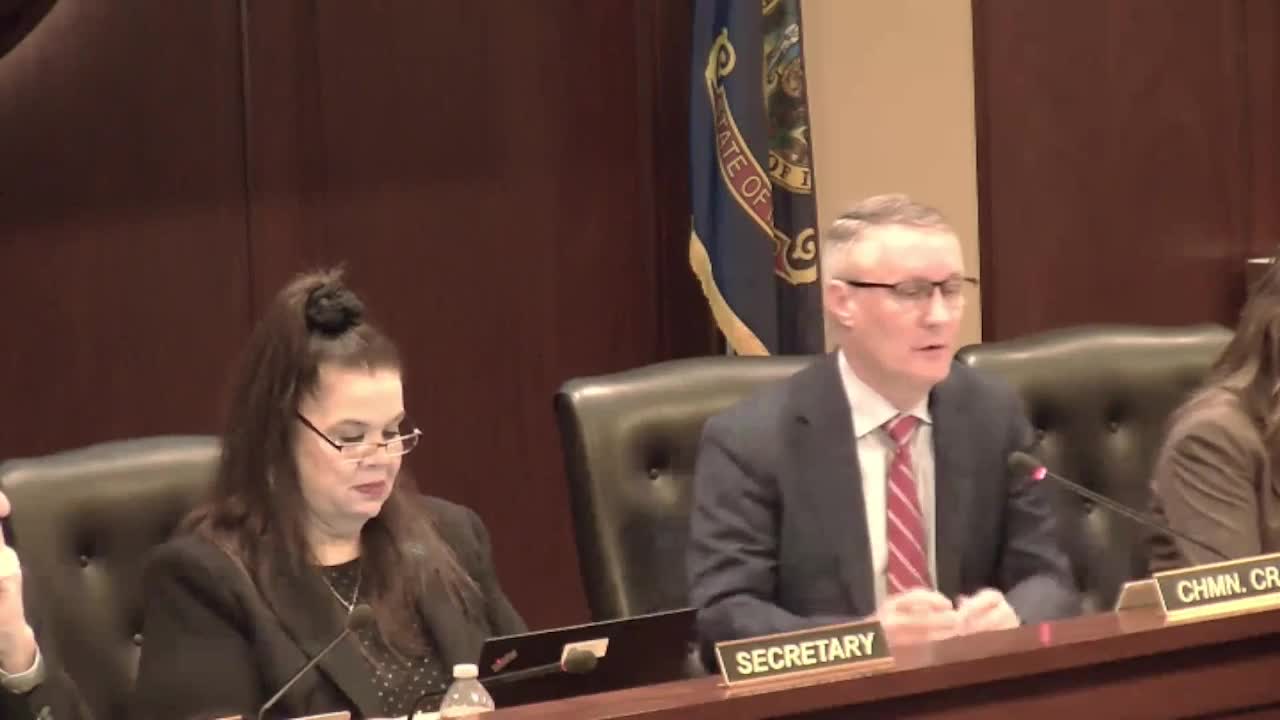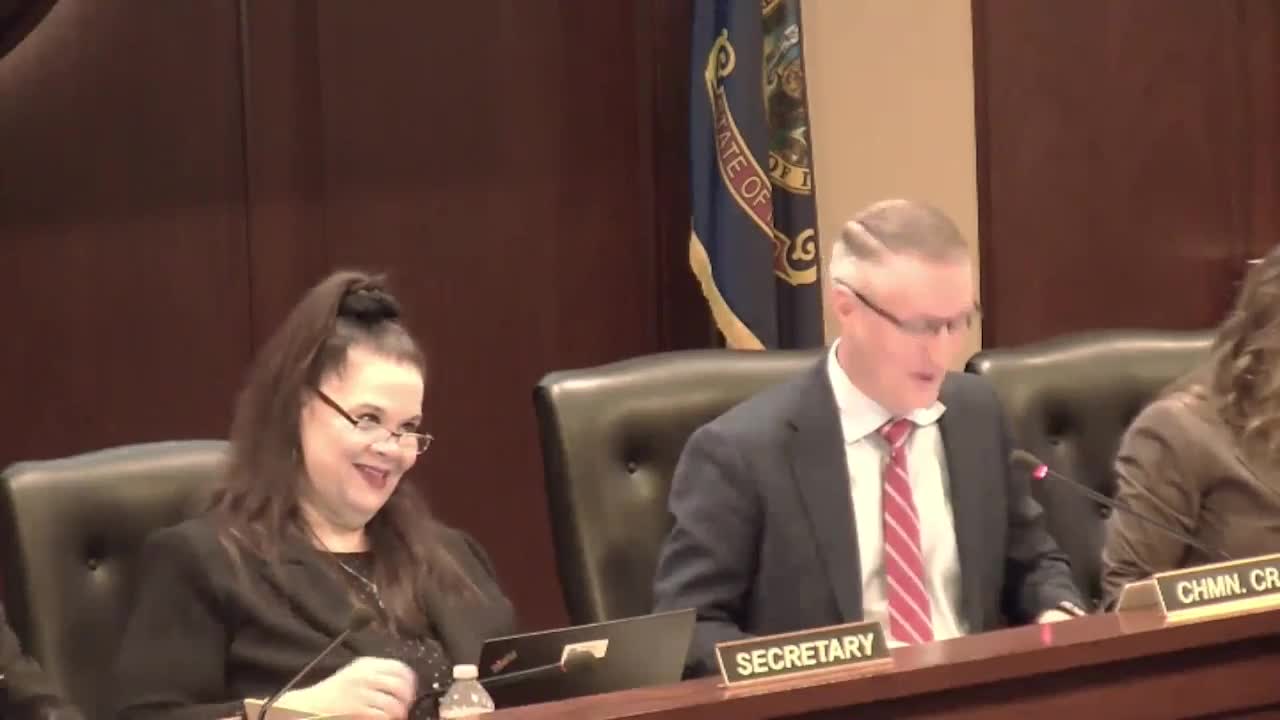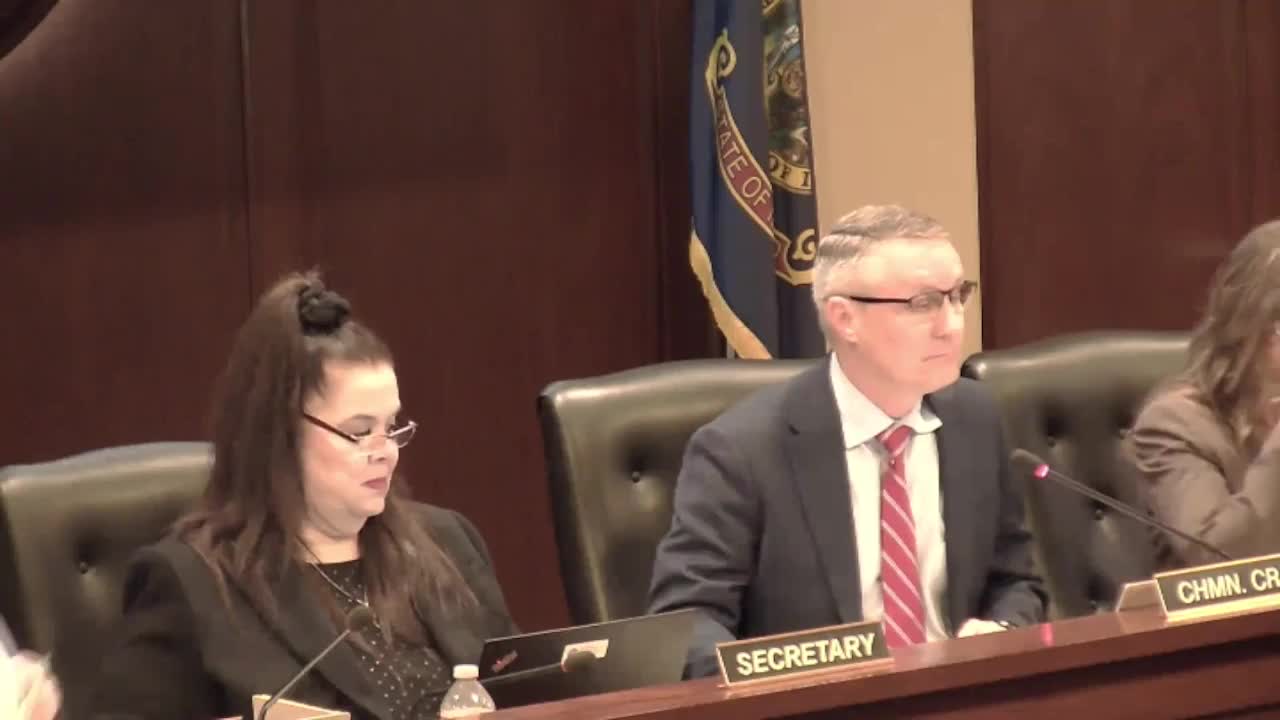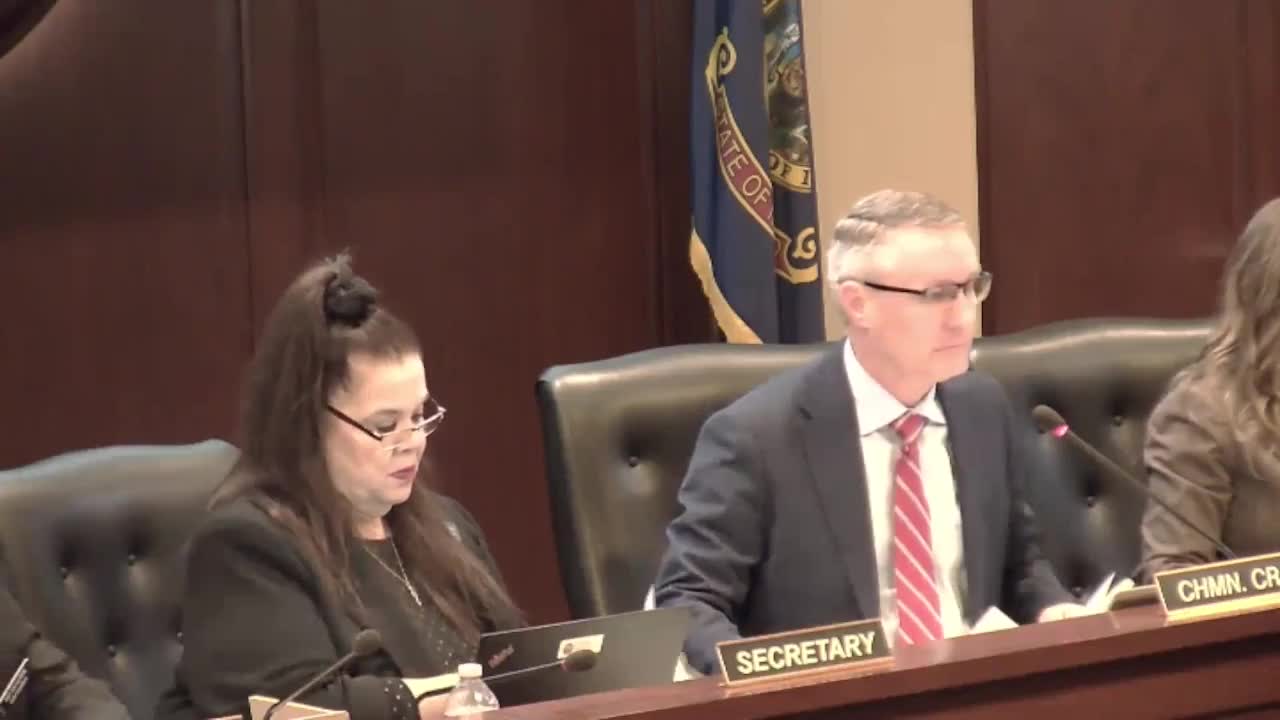Article not found
This article is no longer available. But don't worry—we've gathered other articles that discuss the same topic.

Committee approves technical fix aligning unclaimed property statute with 2024 reforms

Bill would force sale of foreign-adversary-owned land near ranges, offer whistleblower reward

Committee holds bill on special-session emergencies, introduces clarifying RS language

